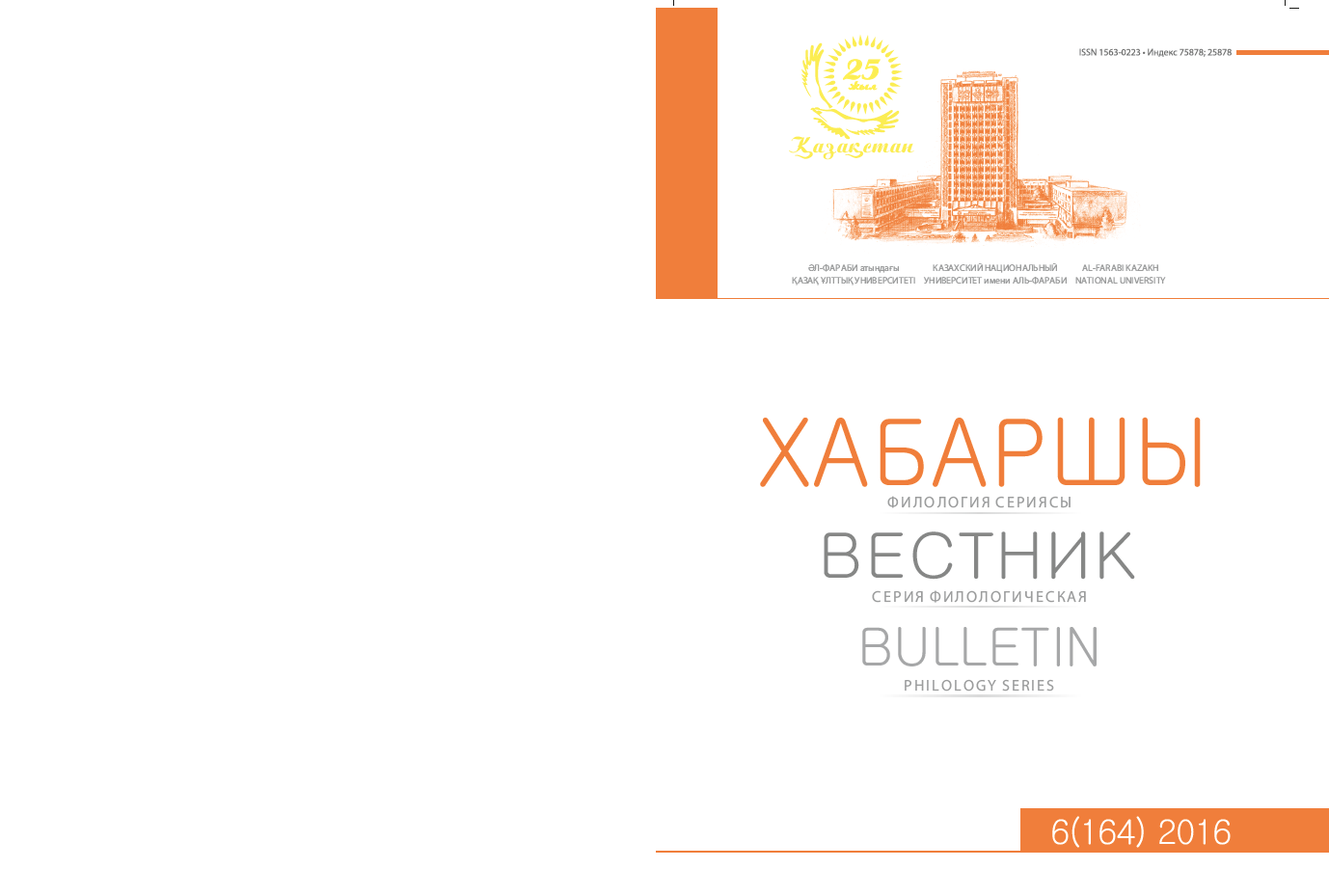Обыденное метаязыковое сознание: экспериментальный анализ
Казахский национальный университет им. Аль-Фараби
Аннотация
Культурно-исторический аспект имен собственных, в частности топонимов, в последние десятилетия ХХ века привлек особое внимание ученых. Названия географических объектов рассматривают как этнокультурный феномен, в котором скрывается информация о границах расселения народов, об их историческом прошлом, о культурно-торговых и географических центрах и т.п. Способность номинировать и описывать явления действительности и функциональные особенности топонимов обусловила новые и различные подходы, методы их изучения как в лингвистике, так и в других отраслях науки. Наша работа направлена на наблюдение и определение результатов интерпретации топонимов Казахстана на основе обыденного метаязыкового сознания. Цель статьи – определить и описать языковые процессы, которые выявляются при восприятии и интерпретации топонимов обыденным сознанием.






